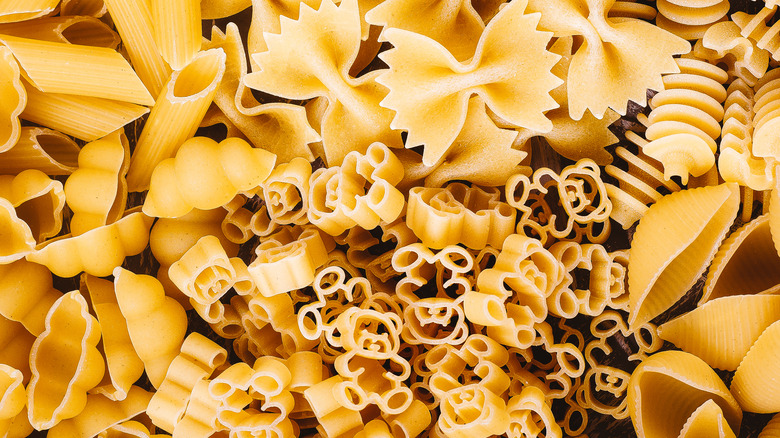No, Marco Polo Didn't Bring Pasta To Italy From China
We may receive a commission on purchases made from links.
In the 13th century, the Venetian merchant Marco Polo followed the Silk Road on his extensive travels through Asia. He brought back with him tales of adventures, the concept of paper money, and descriptions of coal. But he did not bring the one thing we give him most credit for: Pasta. Common lore has convinced us that the famous traveler introduced noodles to Italy after encountering the food in China. In fact, Italians were probably already quite familiar with pasta. The misconception seems to come from a passage in his famous book, "The Travels of Marco Polo," in which he describes a pasta tree. Food historians now believe this reference proves that pasta was already a well-known ingredient and that the Italian was merely describing something unfamiliar in terms that his compatriots would understand.
If historians are so convinced that the Marco Polo story is nothing but a myth, it's because there's ample evidence of pasta existing in Italy long before the merchant was even born. But how did the country's signature food arrive in its territory? The answer is more complicated than you'd think.
Who brought pasta to Italy?
Though we know China was making noodles long before anyone else, there's some debate about whether pasta came to Europe from Asia. Some historians believe that the ancient Italian Etruscan civilization was making pasta in the 4th century BCE, but this is based on an ambiguous image found in a single tomb. There are also references to pasta predecessors in ancient Greece. Still, food history scholar Massimo Montanari asserts in his book, "A Short History of Spaghetti with Tomato Sauce," that dried pasta came to Italy by way of Arab merchants. Historic records support this happening in the 8th or 9th centuries, hundreds of years before Marco Polo came back from his legendary travels in 1295.
Even if other forms of pasta were already present in the territory now known as Italy, the introduction of dried pasta changed the course of the ingredient's history. Drying pasta makes it last much longer, which turns it into very convenient food for practically anyone. It also made it an easy product to export to other countries, which might explain why it has taken over the world and our tables. The next time you're making a classic pasta dish, getting adventurous with something like a butter chicken pasta, or delving into the world of making your own noodles at home, remember to thank the Arab merchants who made it possible for us to enjoy this universally beloved food.

